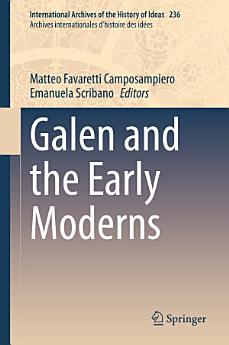Galen and the Early Moderns
เกี่ยวกับ eBook เล่มนี้
เกี่ยวกับผู้แต่ง
Matteo Favaretti Camposampiero is Associate Professor at the Ca’ Foscari University of Venice. His research focuses on early modern philosophy from Descartes to Kant with a special interest in metaphysics, logic, rational theology, the philosophy of biology and medicine, the mind-body problem, and the theories of knowledge, language, and modalities. His publications include two books, Filum cogitandi: Leibniz e la conoscenza simbolica (Milan 2007) and Conoscenza simbolica: Pensiero e linguaggio in Christian Wolff e nella prima età moderna (Hildesheim 2009), five co-edited volumes, and several articles and book chapters on Leibniz, Wolff, their sources, and their influence.
Emanuela Scribano is Professor Emeritus of the History of Philosophy at the Ca’ Foscari University of Venice. Her main research interests are in the history of early modern philosophy. She has published widely on early modern metaphysics, epistemology, rational theology, and philosophy of science, with a focus on Descartes and Spinoza. She has recently investigated the relation between metaphysics and physiology in Cartesian thought. Her publications include L’existence de Dieu. Histoire de la preuve ontologique de Descartes à Kant (Seuil, 2002); Macchine con la mente. Fisiologia e metafisica tra Cartesio e Spinoza (Carocci 2015); A Reading Guide to Descartes’ Meditations on First Philosophy (St. Augustine’s Press, 2016); Anges et bienheureux (Vrin, 2021).







